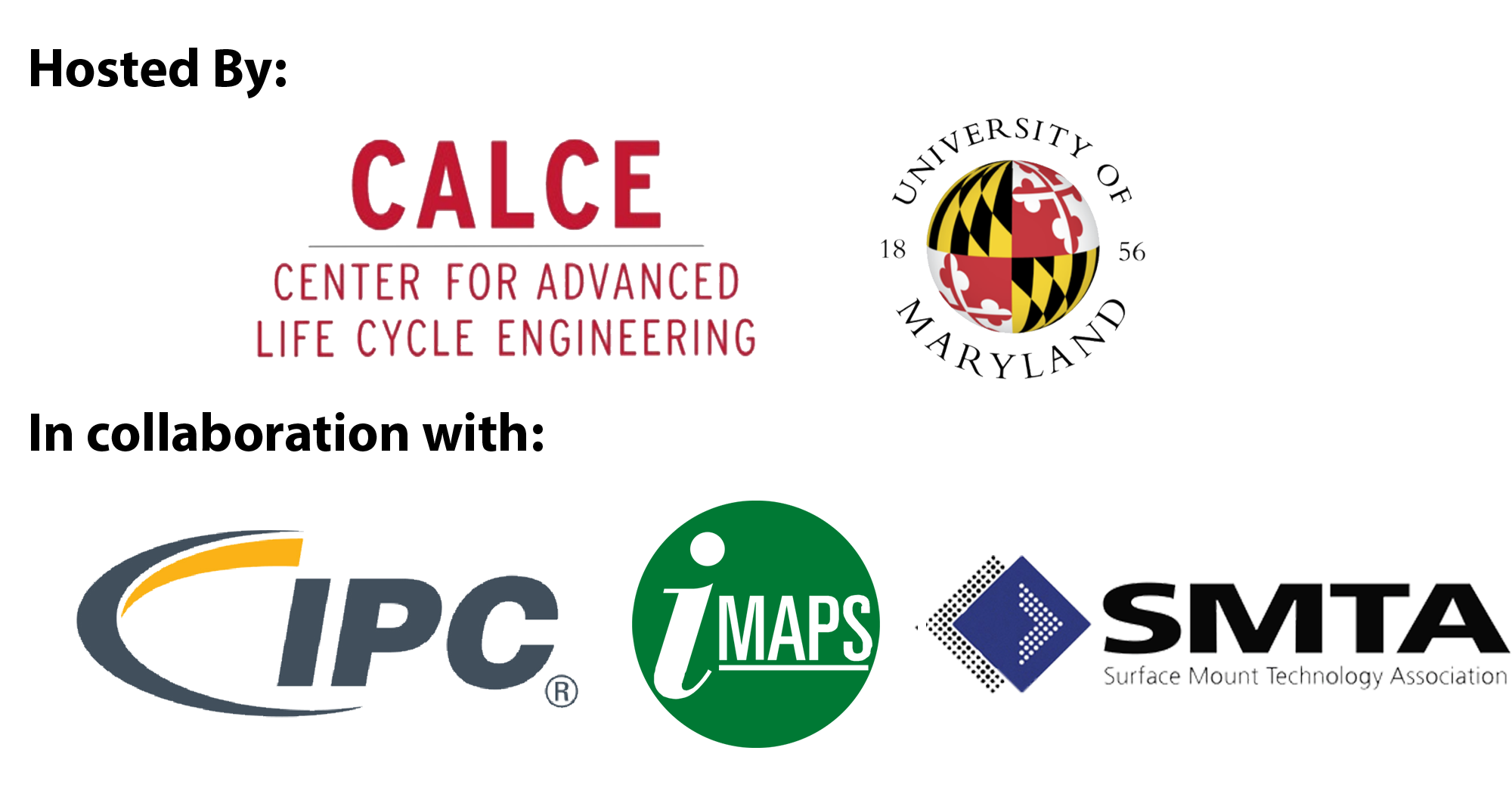
The Center for Advanced Life Cycle Engineering (CALCE) at the University of Maryland, College Park, along with its student chapters – IPC, iMAPS, and SMTA will jointly host an online/virtual elevator pitch contest as part of the Fall Technical Symposium 2020 on November 19,2020. The symposium serves as a platform for students to familiarize themselves with current research in the electronics industry by exchanging relevant learnings, practices, and experience. Additionally, it helps the students disseminate their share of knowledge and get insights about the industry’s recent advances from experts.
The event includes presentations and talks from industry professionals followed by students delivering their technical research or project presentations in the format of a 5-minute elevator pitch. An elevator pitch aims to describe crucial details of a research or a project to a non-specialist coherently and concisely. These details include the research/project’s need to be conducted, its background, objectives, scope, interim or final results, and benefits to the organization and broader society. The topics for the presentation are inclusive of any subjects relevant to the electronics industry.
Through the event, the students get the opportunity to showcase their work and experience, either academic or professional, to fellow students and industry members and obtain valuable feedback from their peers, faculty members, and industry experts. The top three presenters will receive prizes. The ten selected participants for the contest will receive appreciation gifts.
The Event Flyer can be found here.
To join this event please use this Webex Link.
Event Schedule:
Thursday, November 19, 2020
2:30 pm - 2:45 pm – Opening Remarks
2:45 pm - 3:15 pm - Presentation/Talk by the Judges
3:15 pm - 3:50 pm – Session 1 (First 6 Presentations)
3:50 pm – 4:00 pm – Break
4:00 pm - 4:40 pm – Session 2 (Last 6 Presentations)
4:40 pm - 5:00 pm – End of the event with the announcement of winners of the contest
Total Time: 2.5 hours
*US Eastern Time Zone
For Participants:
A panel of judges will evaluate the presentations. The judges’ panel will include industry experts from IPC, iMAPS, and SMTA organizations. All judges will be provided online polls during the WebEx event to score each presentation on a 0-5 scale in five categories. These categories will be clarity of work, the merit of the research, creativity, presentation skills, and overall subject knowledge depth.
The participants with the top three highest average scores will be presented with awards. The first, second, and third prize awards will be $300, $200, and $100, respectively. All the participating presenters will obtain feedback on their presentations to assist them in further improving their work.
Strict consideration will be given to the presentation time making sure that it does not exceed five (5) minutes. The individual presentation should be coherent and some of the key points that needs to be included in this presented can found in this link. It is highly recommended that the widescreen presentation template shall be used to prepare the presentation.
List of Presentations
|
Presentation Topics
|
Name of Presenter |
|
|
|
| Water Ingress Protection Testing and Assessment | Zhou He |
| Effects of Creep and Fatigue on Individual Solder Joints Reliability Under Various Temperatures | Mohammed Abueed |
| Formation process related risk identification for Li-ion battery manufacturing |
Ryan Aalund |
| Novel Polymer Composite Heat Exchangers for Electronic Cooling of CPUs |
Gargi Kailkhura |
| Keep it cool: A novel 3D flexible architecture for cooling future generation electronic devices |
Khan Mohammad Rabbi |
| Modeling and Mechanisms Analysis of the Knee Point Behavior in the Capacity Fade of Lithium-ion Batteries |
Weiping Diao |
|
|
|
|
|
|
| Octave-band Filtering for Convolutional Neural Network-based Diagnostics for Rotating Machinery | Namkyoung Lee |
| Applications of Machine Learning in next generation wireless communication | Sakshi Patil |
| Data updating approaches for enabling causal-based PHM modeling of complex engineering systems via dynamic Bayesian Networks |
Austin Lewis |
| Prognostics and Secure Health Management of Electronic Circuits | Varun Khemani |
| Additive Manufacturing Transient Liquid Phase Sintered (TLPS) Material |
Gilad Nave |
| Creation of a docking system for permanent ASV installation | Elyas Masrour |
For any questions, please contact:
Rishabh Chaudhary (rish5251@umd.edu)
Suraj Ravinamalan (surajr97@umd.edu)
Beihan Zhao (bzhao12@umd.edu)
Top